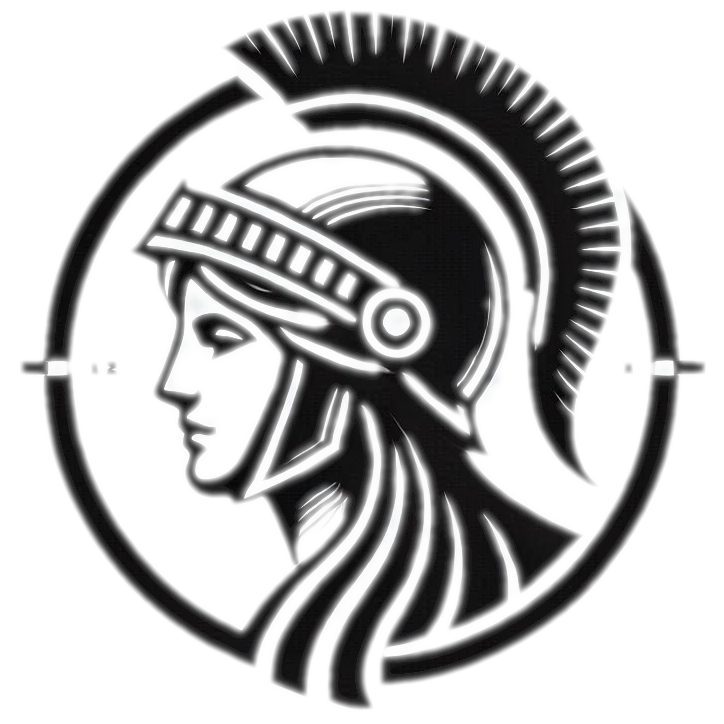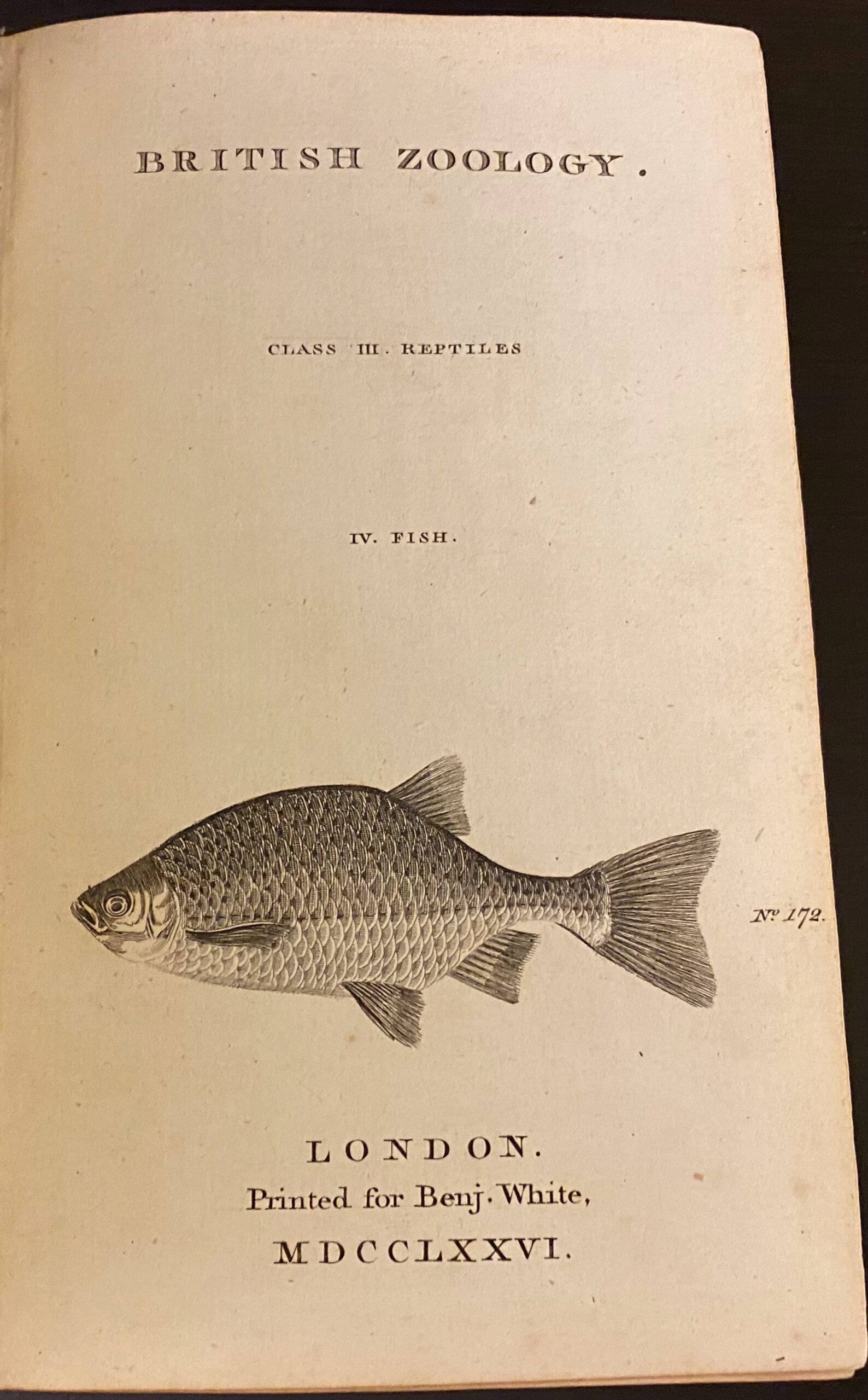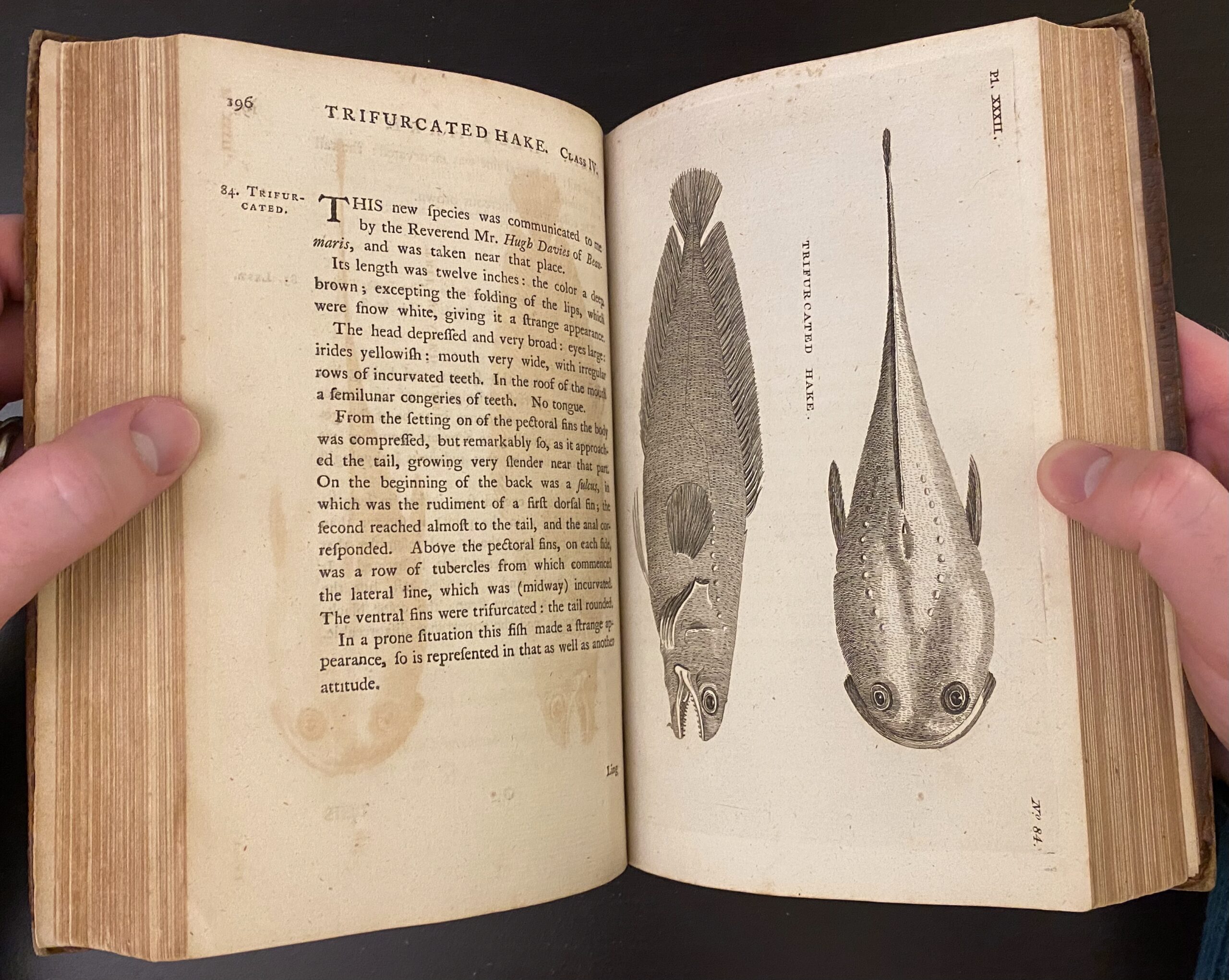- Title: British Zoology: Volume 3
- Author: Thomas Pennant
- Printed by William Eyres For Benjamin White at Horace’s Head, Fleet Street, London
- Estimated year of printing: 1776
Notes:
Warrington
MDCCLXXVI (1776)
Ex Libris: “Fidem Servabo Hasted”
Printed in 1776, this book is one of the oldest in my collection — and in fairly good condition for it’s age. There is foxing and the very first page is slightly disconnected, but otherwise the book is in tact and does not feel fragile. I acquired this book at the Boston International Antiquarian Book Fair in 2022.
I love antique science books, as they tend to be great time capsules of information. This book is one of a four volume set documenting animal species of Britain, this particular volume is focused on reptiles and fish. It is filled with over 100 plates, illustrating the various species, including some fold-out illustrations. The text describes each species in great detail, but often in a very informal style, by today’s standards. Representative of its era, Bible verses are occasionally interspersed throughout the text.
The author, Thomas Pennant (1726 – 1798) was one of the most influential naturalists of his time in Britain. Born in Wales to a wealthy family, Pennant travelled the country gathering information and publishing summaries of the natural history and antiquities. The first edition of this set was published in 1761. The work was well received by his fellow naturalists and earned Pennant a position as Fellow of the Royal Society in 1767. Despite its reception, the book did not sell well initially, but was followed by 3 more expanded editions printed in the smaller, more affordable, octavo format which were popular. Based on the 1776 printing date, this book is from the fourth edition.
Benjamin White (1725 – 1794) was a successful Fleet Street publisher, who specialized in natural history books. Horace’s Head was the name of his publishing firm at the corner at Fleet Street and The Strand in London. William Eyres (1734 – 1809) was a successful printer known for his high quality, based out of Warrington, Lancashire, England. He was the official printer of the nearby Warrington Academy.
The Ex Libris bookplate contains the Latin phrase “Fidem Servabo”, which means “I will keep the faith”, and the Hasted family crest. This most likely points to having been owned by Henry Hasted, who lived from 1771 – 1852. He was the rector of Horningsheath and Braisworth, lecturer of St Mary’s in Suffolk, and was chaplain to the Marquess of Bristol.
Historical context:
This book was printed in 1776, the same year that the Declaration of Independence was signed. The Revolutionary War began the prior year. George III was the King of Great Britain.



